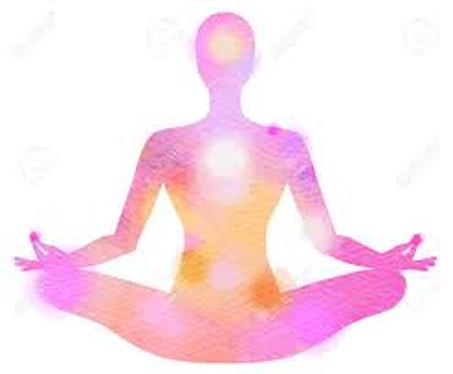
Making the Mind-Body Connection:
Benefits of Yoga and Meditation for Seniors and Caregivers
Researchers have found evidence that seniors who practice yoga and meditation regularly can
expect to benefit physically and mentally in myriad ways. In fact, physicians today often
recommend yoga to patients over 50 because it’s effective at lowering blood pressure, easing
pain and improving sleep. It’s been proven helpful for seniors who suffer with chronic pain,
Alzheimer’s disease and forms of dementia related to memory loss and cognitive impairment.
For caregivers, it’s a tremendously helpful means of alleviating the stress that can accumulate
over time when providing care for an elderly individual who may need round-the-clock help. Yet
there remain several misconceptions about what exactly yoga is and how it can help elderly
individuals and their caregivers.
Flexibility
The classic image of yoga instructors contorting their bodies into Slinky-like poses can be off-
putting to many older adults who aren’t very flexible. The truth is that yoga is beneficial whether
you can bend over backwards or not. It’s really about breathing and concentration, a meditative
discipline that helps establish a strong mind-body connection. Flexibility is a by-product of the
overall health that yoga can impart.
Different levels
Newcomers often view yoga with the misconception that one must learn alongside experienced
practitioners who’ve achieved a high level of proficiency. In fact, it’s generally recommended
that seniors start out with what’s often called “gentle yoga” until they become used to the
practice and its physicality. Be sure that you begin with a class that’s appropriate to your
physical condition and age, especially if you’ve been inactive for a long time.
Gain, but no pain
The one constant expectation of practicing yoga is that it should be steady and comfortable,
never painful or excessively exertive. People sometimes confuse yoga with exercise and poses
that belong in the category of gymnastics. No position should do more than provide a pleasing
and relaxing stretching sensation. Rest assured that if something hurts, you should stop
immediately. Yoga is about breathing, meditation, balance and the integration of body and mind.
In fact, relaxed breathing is one of the most important of all yoga “tools.”
Check with your doctor
Always consult your doctor before beginning a yoga class or regimen. Certain physical
conditions, such as osteoporosis or heart disease, may require that you avoid specific physical
movements that could cause injury. A yoga instructor should always inquire about your health
condition and may ask for your permission to consult with your doctor to structure a yoga
program that works best for you.
‘Me’ time for caregivers
The practices of yoga and meditation are ideally suited to caregivers, who spend countless
hours expending their love and energy in the selfless care of an elderly loved one. It can be a
difficult and stressful job that allows little time for yourself. Yoga teaches love and the creation of
mutual understanding and growth, an objective that can be difficult for caregivers and their care
subject to maintain. Yoga puts you in touch with sources of stress and tension within your body,
showing how to release pent-up negative energy through deep breathing, stretching and inner
contemplation. Best of all, an instructor can teach you how to practice yoga and meditation on
your own when you need help to get through stressful days and caregiving responsibilities
prevent you from attending class.
Addiction recovery
Some seniors may be navigating a recovery process from earlier in their lives or even currently,
and caregivers are at high risk for developing addiction issues related to stress from their jobs.
For anyone who has been in recovery or is currently participating, yoga can be incredibly
beneficial. People in recovery from addiction frequently experience depression and anxiety.
Yoga and meditation can help you maintain a good relationship with your physical, mental and
spiritual self, achieving a unity that may have eluded you. It can also help you maintain a good
relationship with your physical self as well as your spiritual side.
Yoga and meditation are rejuvenating practices that can lead to inner peace and physical and
mental well-being. Older adults and caregivers frequently face depression, isolation, stress and
anxiety with little understanding of how to combat them. Yoga and meditation can help you
marshal your inner resources that can help you overcome them.
Author
Harry Cline is creator of NewCaregiver.org and author of the upcoming book, The A-Z Home Care
Handbook: Health Management How-Tos for Senior Caregivers. As a retired nursing home administrator,
father of three, and caregiver to his ninety-year-old uncle, Harry knows how challenging and rewarding
caregiving can be. He also understands that caregiving is often overwhelming for those just starting out.
He created his website and is writing his new book to offer new caregivers everywhere help and support.
Benefits of Yoga and Meditation for Seniors and Caregivers
Researchers have found evidence that seniors who practice yoga and meditation regularly can
expect to benefit physically and mentally in myriad ways. In fact, physicians today often
recommend yoga to patients over 50 because it’s effective at lowering blood pressure, easing
pain and improving sleep. It’s been proven helpful for seniors who suffer with chronic pain,
Alzheimer’s disease and forms of dementia related to memory loss and cognitive impairment.
For caregivers, it’s a tremendously helpful means of alleviating the stress that can accumulate
over time when providing care for an elderly individual who may need round-the-clock help. Yet
there remain several misconceptions about what exactly yoga is and how it can help elderly
individuals and their caregivers.
Flexibility
The classic image of yoga instructors contorting their bodies into Slinky-like poses can be off-
putting to many older adults who aren’t very flexible. The truth is that yoga is beneficial whether
you can bend over backwards or not. It’s really about breathing and concentration, a meditative
discipline that helps establish a strong mind-body connection. Flexibility is a by-product of the
overall health that yoga can impart.
Different levels
Newcomers often view yoga with the misconception that one must learn alongside experienced
practitioners who’ve achieved a high level of proficiency. In fact, it’s generally recommended
that seniors start out with what’s often called “gentle yoga” until they become used to the
practice and its physicality. Be sure that you begin with a class that’s appropriate to your
physical condition and age, especially if you’ve been inactive for a long time.
Gain, but no pain
The one constant expectation of practicing yoga is that it should be steady and comfortable,
never painful or excessively exertive. People sometimes confuse yoga with exercise and poses
that belong in the category of gymnastics. No position should do more than provide a pleasing
and relaxing stretching sensation. Rest assured that if something hurts, you should stop
immediately. Yoga is about breathing, meditation, balance and the integration of body and mind.
In fact, relaxed breathing is one of the most important of all yoga “tools.”
Check with your doctor
Always consult your doctor before beginning a yoga class or regimen. Certain physical
conditions, such as osteoporosis or heart disease, may require that you avoid specific physical
movements that could cause injury. A yoga instructor should always inquire about your health
condition and may ask for your permission to consult with your doctor to structure a yoga
program that works best for you.
‘Me’ time for caregivers
The practices of yoga and meditation are ideally suited to caregivers, who spend countless
hours expending their love and energy in the selfless care of an elderly loved one. It can be a
difficult and stressful job that allows little time for yourself. Yoga teaches love and the creation of
mutual understanding and growth, an objective that can be difficult for caregivers and their care
subject to maintain. Yoga puts you in touch with sources of stress and tension within your body,
showing how to release pent-up negative energy through deep breathing, stretching and inner
contemplation. Best of all, an instructor can teach you how to practice yoga and meditation on
your own when you need help to get through stressful days and caregiving responsibilities
prevent you from attending class.
Addiction recovery
Some seniors may be navigating a recovery process from earlier in their lives or even currently,
and caregivers are at high risk for developing addiction issues related to stress from their jobs.
For anyone who has been in recovery or is currently participating, yoga can be incredibly
beneficial. People in recovery from addiction frequently experience depression and anxiety.
Yoga and meditation can help you maintain a good relationship with your physical, mental and
spiritual self, achieving a unity that may have eluded you. It can also help you maintain a good
relationship with your physical self as well as your spiritual side.
Yoga and meditation are rejuvenating practices that can lead to inner peace and physical and
mental well-being. Older adults and caregivers frequently face depression, isolation, stress and
anxiety with little understanding of how to combat them. Yoga and meditation can help you
marshal your inner resources that can help you overcome them.
Author
Harry Cline is creator of NewCaregiver.org and author of the upcoming book, The A-Z Home Care
Handbook: Health Management How-Tos for Senior Caregivers. As a retired nursing home administrator,
father of three, and caregiver to his ninety-year-old uncle, Harry knows how challenging and rewarding
caregiving can be. He also understands that caregiving is often overwhelming for those just starting out.
He created his website and is writing his new book to offer new caregivers everywhere help and support.
